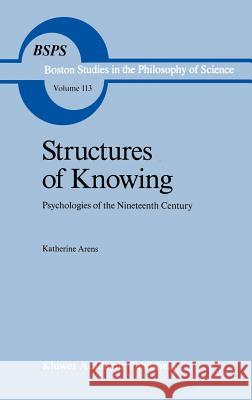Structures of Knowing: Psychologies of the Nineteenth Century » książka
topmenu
Structures of Knowing: Psychologies of the Nineteenth Century
ISBN-13: 9780792300090 / Angielski / Twarda / 1989 / 430 str.
Structures of Knowing: Psychologies of the Nineteenth Century
ISBN-13: 9780792300090 / Angielski / Twarda / 1989 / 430 str.
cena 603,81
(netto: 575,06 VAT: 5%)
Najniższa cena z 30 dni: 578,30
(netto: 575,06 VAT: 5%)
Najniższa cena z 30 dni: 578,30
Termin realizacji zamówienia:
ok. 22 dni roboczych.
ok. 22 dni roboczych.
Darmowa dostawa!
Kategorie BISAC:
Wydawca:
Springer
Seria wydawnicza:
Język:
Angielski
ISBN-13:
9780792300090
Rok wydania:
1989
Wydanie:
1989
Numer serii:
000033528
Ilość stron:
430
Waga:
1.76 kg
Wymiary:
29.7 x 21.0
Oprawa:
Twarda
Wolumenów:
01











